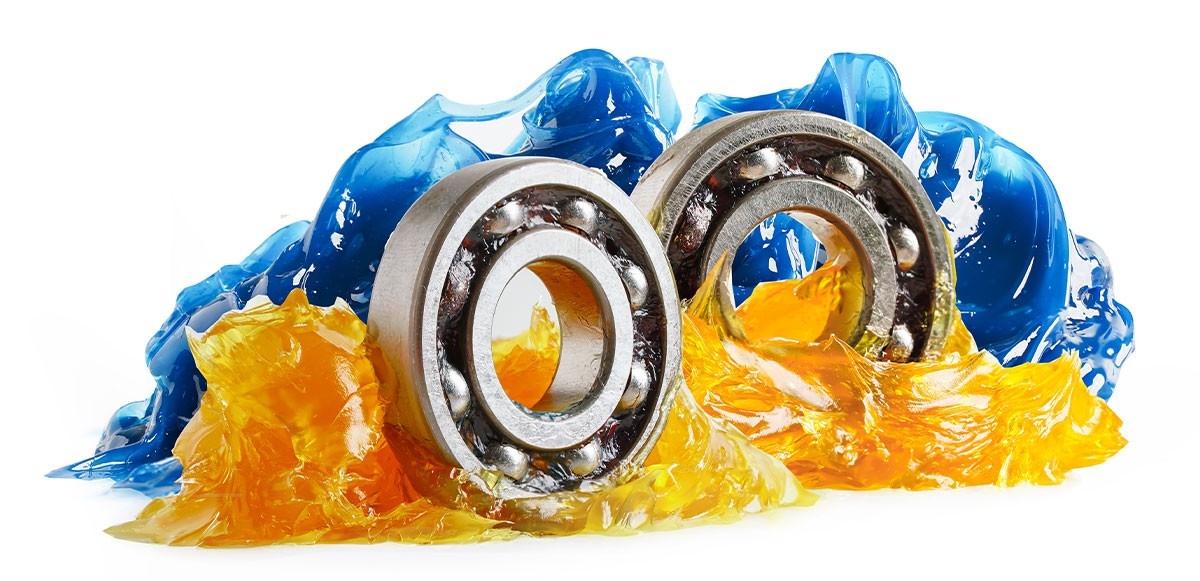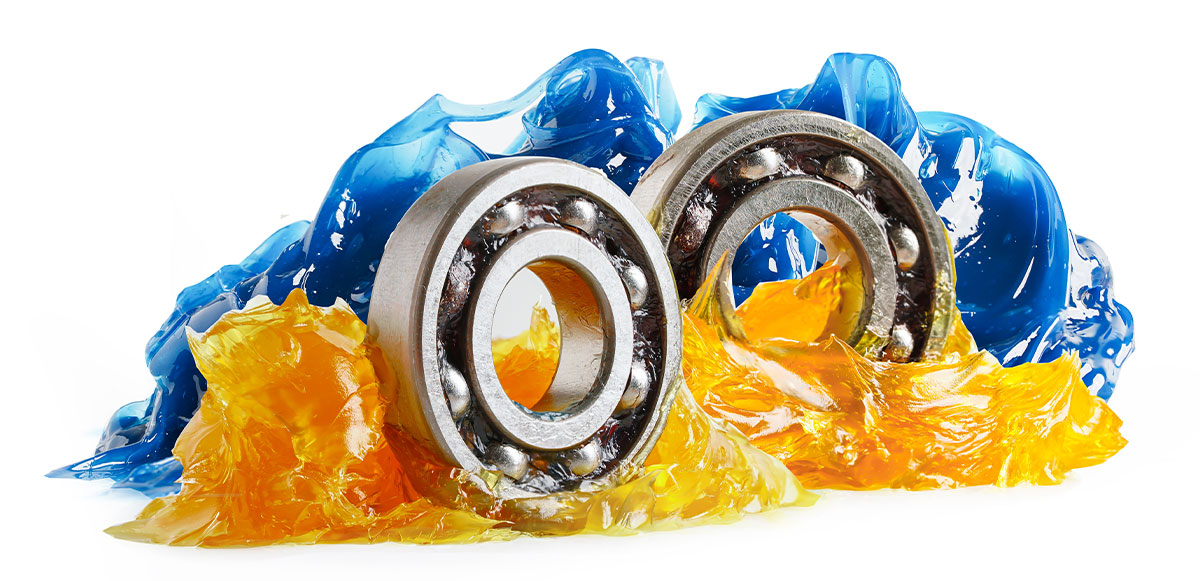Understanding Grease: Its Many Types, Application & Properties


An integral part of countless machines and systems, Grease provides lubrication, protection, and stability in a wide range of applications. Although seen as a simple substance, the science behind the use, its applications and properties are layered. In this blog, we’ll cover the essentials of grease while considering how it works and its overall importance.
Uses of Grease
Grease plays a key role in protecting machinery operating under severe temperatures, pressures and shock loads. It is also ideal for heavy load applications that run at slow speeds. Grease can even extend the life of word equipment components because it adheres better than liquid lubricants.
Primarily, Grease is used on two main equipment components, namely bearings and pins/bushings.
Bearings and pins/bushings facilitate movement between machine components while reducing friction. They are also subject to the most severe conditions that any machine will encounter, including extreme temperature; pressures; shock loads; infiltration of surrounding elements such as water, dust and dirt. In combination, these conditions make bearings and pins/bushings particularly susceptible to failure. That’s why grease is the ideal lubricant to protect them.
Critical grease performance properties
Grease performance properties vary by application, but generally include the below:
ConsistencyThis essentially means the ability of grease to hold its structure, whether it's formulated to be thicker and tackier or softer and more fluid.
Dropping pointThis is the highest temperature a grease can withstand before it begins to separate into its parts and liquify.
Load carrying performanceGrease can provide protective properties under extremely high pressures and sudden shock loads, preserving a lubrication barrier between metal surfaces.
Low temperature pumpabilityThe ability of a grease to maintain flow or to be pumped through a lubricating system at lower than ambient temperatures to even extreme temperatures.
Lubricant durability The overall ability of a grease to remain in place, doing its job of protecting equipment in the face of a broad range of harsh operating conditions.
Oxidation and thermal stability A person’s ability to withstand high temperatures, which can cause oxidation that can harm equipment.
Types of grease thickeners There are different types of grease thickeners. Among them are as given below:
Simple and mixed soap thickeners
Simple soap thickeners such as Sodium and Anhydrous calcium and mixed soap thickeners such as Lithium Calcium provide basic equipment protection at lower costs due to formulations that are devoid of performance additives
Sodium greases provide satisfactory shear stability and rust protection. But oxidation stability and water resistance are poor.
Anhydrous calcium greases provide good shear stability. Oxidation resistance is acceptable; however, they do not protect well against rust.
Meanwhile, Lithium Calcium greases provide water and high-temperature resistance
Simple Soap thickeners Simple lithium is a good general-use grease with low temperature properties such as pumpability and good working stability and water resistance properties.
Non soap thickeners Polyurea greases are non-metallic with antioxidant capabilities. They provide excellent thermal stability and high temperature performance but are less effective for shear stability. Polyurea greases are an ideal choice for sealed-for-life applications.
Complex soap thickeners Over-based Calcium Sulfonate Complex and Lithium Complex are greases that contain metallic elements.
What lithium complex greases offer is exceptional oxidation and thermal stability performance at soaring operating temperatures. They provide good water resistance and load carrying properties but less effective with cold temperature pumpability.
Over-based calcium sulfonate complex greases offer superior attributes in most product performance attributes. They provide superior oxidation and thermal stability, at greater operating temperatures, water resistance and load carrying properties.
Aluminum complex soap thickeners Aluminum complex greases provide good shear stability and pumpability at lower temperatures. It demonstrates good water resistance, high temperature and properties desirable for spray lubrication.
To conclude, getting a proper understanding of grease is utterly useful for maintaining the durability and efficiency of machinery. It is by choosing the right type of grease for the job and applying it in a proper manner that you can reduce wear, prevent corrosion, and extend the longevity of your equipment.





























